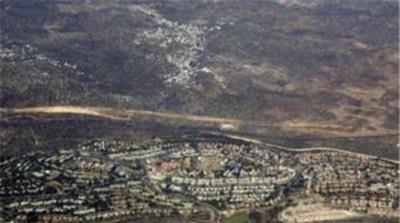
Colombia’s President Ivan Duque has opened a “national dialogue” that he said will include citizens from all walks of life after days of massive protests rattled the government in the Latin American country.
The conservative leader gathered mayors and governors from around the country on Sunday to launch the initiative that he said will focus on six main topics, including equitable economic growth and corruption.
But protest organisers have balked at the move, saying the government has not done anything to address the demands of demonstrators, who have called for an end to killings of indigenous and social workers, corruption and possible economic reforms.
More:
The dialogue will run through March 15, though Duque has provided relatively few details on exactly how citizens will become involved.
“This National Dialogue will result in long-term policies, and [steps] to accelerate the effectiveness of national and regional [public] programmes, which [will] give us [new] guidelines for a shared vision of the country,” Duque wrote on Twitter.
Esta Conversación Nacional tendrá como resultados la construcción de políticas a largo plazo, acciones de mejoramiento para acelerar la efectividad de los programas gubernamentales nacionales y regionales, que nos den lineamientos de una visión compartida de país.
— Iván Duque (@IvanDuque) November 24, 2019
Duque, who came to power last June, is under pressure to present a solution that will appease the masses who filled Colombia’s streets four days earlier and are calling for new mobilisations on Monday.
Some protest organisers said the president should first hold a meeting with the National Strike Committee – a steering group made up of students and labour leaders among those behind the protests.
“The government of Ivan Duque hasn’t concretely resolved any of the motives for the protest,” the Central Union of Workers said in a statement.
Claudia Lopez, who became the capital Bogota’s first female Mayor in October, also questioned the focus of the so-called “dialogue” after the meeting.
The dialogue was “not about explaining government policies in more depth and communicate them better,” she said.
“No, the dialogue has to be to humbly recognise mistakes, make changes and make concessions, otherwise it will not be a dialogue that leads to anything concrete but to more frustrations.”
Massive demonstrations
The recent demonstrations have brought together protesters from nearly all sectors of society, with qualms ranging from recently proposed labour reform and an uptick in the number of killings of indigenous and social leaders to structural problems and corruption that have been part of Colombia for generations.
The 43-year-old conservative president has also been criticised for his security policies, particularly his position on the peace deal signed between former President Juan Manuel Santos and Rodrigo Londono, the leader of the Revolutionary Armed Forces of Colombia (FARC) in 2016.
The peace process has been unraveling under Duque, who campaigned on the promise to dismantle the pact that ended Latin America’s longest-running conflict.
Hundreds of thousands of demonstrators have marched in Bogota and other cities for the past four days as part of a nationwide general strike.
There were arrests and clashes as trade unions, students, opposition parties and the South American country’s indigenous organisations vented their anger.
At least three people have been killed and nearly 300 were wounded in the unrest, with thousands of soldiers and riot police deployed to quell the protests.
Hundreds of people defied a curfew in the capital on Friday and Saturday – the first imposed since 1977 – to converge in front of Duque’s home, singing the national anthem and banging pots and pans for an hour.
The protests come as much of Latin America is experiencing a tide of discontent, with paralysing demonstrations in nations including Chile, Ecuador and Bolivia clamoring against political leaders of varying ideological hues.
“It has been decades since we’ve seen a mobilisation like this,” Patricia Munoz Yi, a professor at Bogota’s Pontifical Xavieran University, told Associated Press.
Duque’s call for “national dialogue” could perhaps be taking a page from French President Emmanuel Macron, who opened a “Great National Debate” to involve citizens in solutions after months of angry protests there.
“This is a conversation of all and with all,” Duque said.
In order to be successful, analysts say Duque’s dialogue will need to draw genuine participation from a wide cross-section of society and provide swift answers.
SOURCE:
Al Jazeera and news agencies












